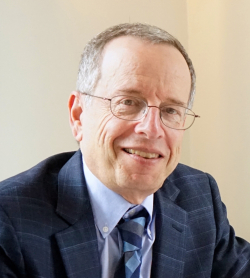Michael S Schudson


Professor Michael S Schudson
Doctor of Social Sciences, honoris causa (2018)
Professor Schudson is Professor of Journalism at Columbia University Graduate School of Journalism and one of the leading international scholars of journalism. Amongst the honours he has received are a Guggenheim Fellowship, a MacArthur Foundation “Genius Fellow” and a Murray Edelman Distinguished Career Award. He has written nine books and edited four others, together with a large body of scholarly articles in the leading journals in his field.
His title is “Professor of Journalism”, but anyone familiar with his work will know that this gives only a limited insight into the range of his scholarship. His career began in social history, with the publication of a landmark study, Discovering the News, which traced the emergence of modern American journalism over the nineteenth and twentieth century, and this trajectory continues to be a major point of reference in his more recent work. This work, and those that have succeeded it, display very broad intellectual foundations. For example, in a much later essay, dating from 2001, he deployed concepts of group cohesion derived from Durkheim and concepts of bureaucratic authority derived from Weber to show how the journalistic idea of “objectivity” emerged in the USA as a necessary constituent of what he terms an “occupational community” that aspired to the status of a profession. Professor Schudson has demonstrated the breadth of his intellectual vision in publishing scholarly work on aspects of US life including: the role of advertising, the history of what it means to be a citizen and the nature of political participation, developments in the disciplines of both cultural studies and memory studies, the impact of digital technologies on the media, democracy and society, and, of course, Donald Trump.
How can we make sense of such a wide-ranging body of work? It is tempting to opt for a purely scholarly definition of Professor Schudson as an “historical sociologist whose work focuses on the US media” but that is too narrow a definition and understates his importance to general intellectual life. Certainly, his scholarly credentials in his field are unquestionable: his work is part of the framework of every active researcher, every graduate student, and even many undergraduate students, in the field of media and communication studies. Sooner or later, scholars who write about the media, either in the US or more broadly in an international context, will be obliged to make reference to his work and acknowledge the penetrating insights and clear exposition that mark his publications and inform his public presentations.
While we may recognise that characterisation, we also need to say something more expansive, and more important. The connecting thread in Professor Schudson’s work is a deep engagement with civic life in the USA. It is this which is articulated through the central role of the mass media, in particular those characteristics of critical independence and the serious exploration of public issues which underpinned the phase of US journalism which flourished for many years after the Second World War.
He has always been aware of the limits and problems that are implicit in his subject matter. For example, much of Professor Schudson’s recent work on the US press has been to analyse the ways in which the development of the internet has meant that advertising has moved away from the press, leading to a profound economic crisis to which there is no obvious solution. This crisis means that the number of journalists, the resources available to them, and their professional autonomy, are all under stress, with consequences for the extent and quality of the news that they can provide to citizens. The many ways in which the press can serve democratic political life, to which he devoted a famous book a decade ago, are under threat not only from attacks by politicians but also from challenges to the financial basis upon which they must rest.
In sum, one can state, without fear of contradiction or criticism, that Professor Schudson is a world-leading scholar in the study of journalism and that we in this field stand in his debt. HKBU is pleased to nominate Professor Michael Schudson to receive the award of Doctor of Social Sciences, honoris causa.